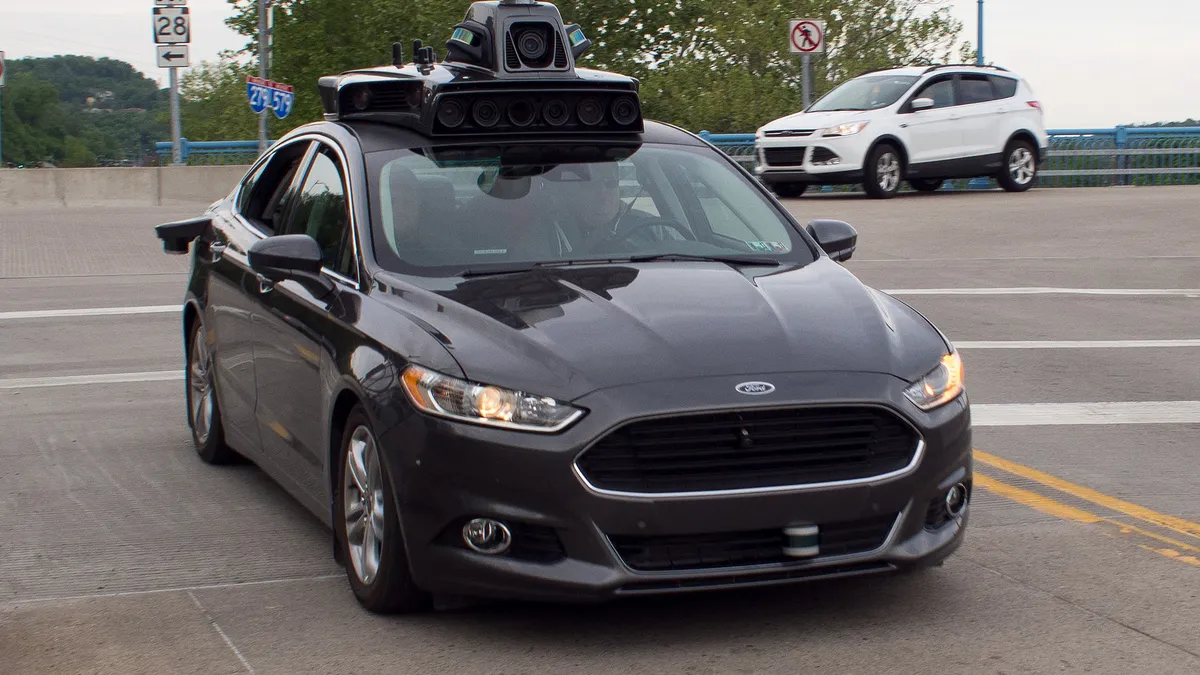Dive Brief:
-
Drivers in Tampa Bay, FL, could pay less in tolls and stay connected with highway driving warnings in their rear-view mirrors if they volunteer for a connected vehicle pilot program, according to Government Technology.
-
Roughly 1,600 private vehicles, in addition to 10 city buses and 10 streetcars, will be outfitted with equipment that tracks speed, braking distance and other driving data to help improve safety on the road.
-
The program will see short-range roadside communication devices installed along a 10-mile stretch of the Lee Roy Selmon Expressway. Each vehicle will be fitted with a rearview mirror that can provide audio or visual messages to drivers, and an on-board device and antenna to connect to the roadside unit.
Dive Insight:
Driverless vehicles are becoming less a thing of the future and more a part of the present. Already, states are showing interest in the technology by funding related research and even implementation. That's driving product developers in the space to hone their connected and autonomous vehicle (CAV) technology so it's ready for the market when the floodgates open.
Florida has been a strong player in CAV. This summer, it started construction on a 400-acre test track that will experiment with high-speed toll technology and vehicle-to-vehicle and vehicle-to-infrastructure communication. The university is also partnering with MIT to develop curriculum related to CAV. It's not alone. The U.S. Department of Transportation recently named 10 test sites for CAV technology across the country, including the in-progress American Center for Mobility at Willow Run, near Detroit.
CAV's growth has prompted state and municipal officials to push for legislation governing its use and development. For now, one of those key tenets has been a guide from the National League of Cities outlining vehicle types, policy considerations and basic recommendations for cities and states that want to implement such a program.
Legislation currently making its way through Congress could be their answer. If approved, the measure would prompt federal regulators to start crafting guidelines for CAVs in the next year and a half. Ahead of that decision, 14 states and Washington, DC, have enacted their own autonomous vehicle laws to provide a clearer legal framework for the technology on their roads.












